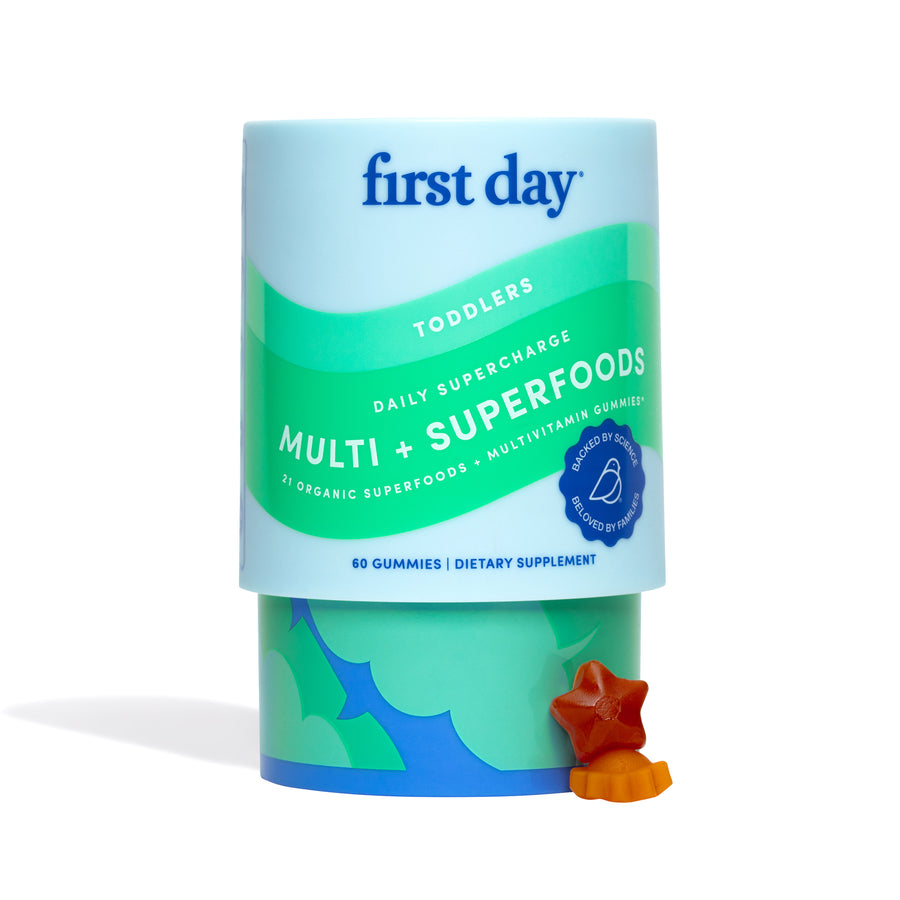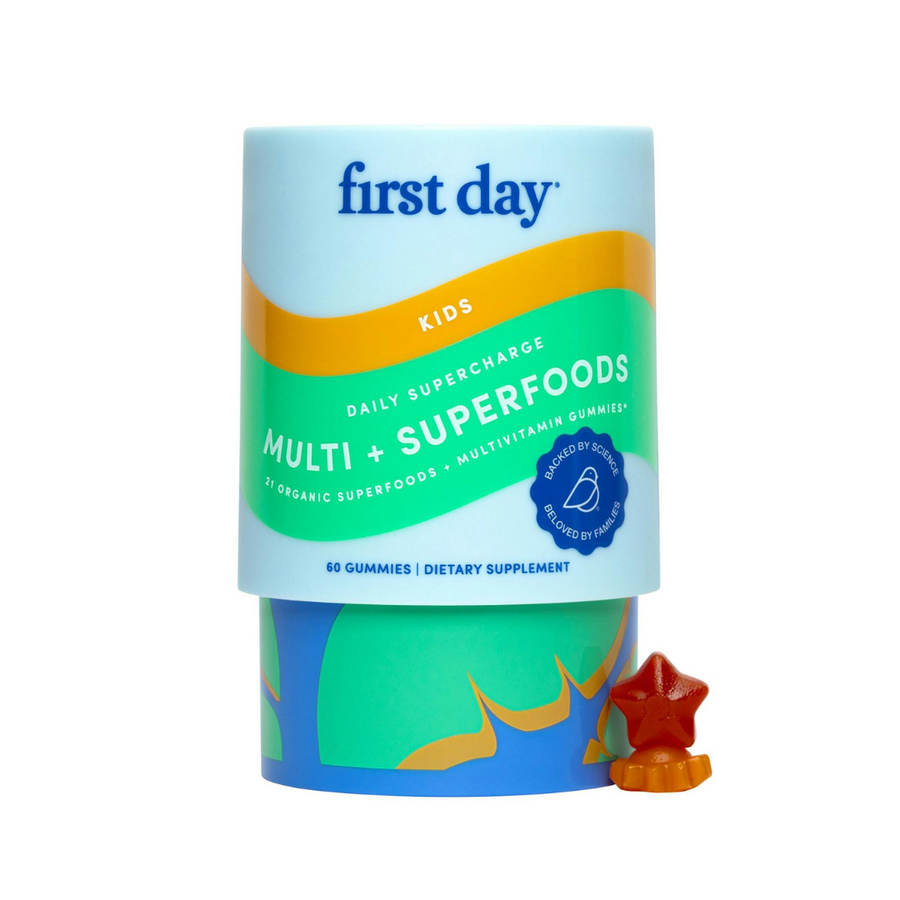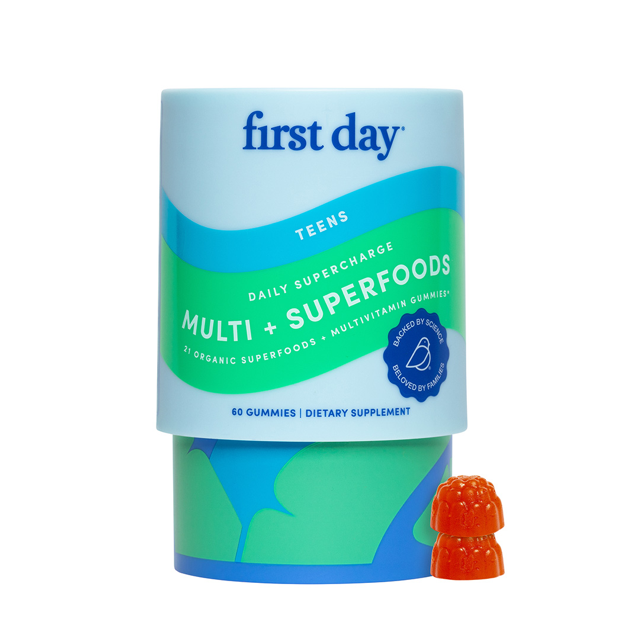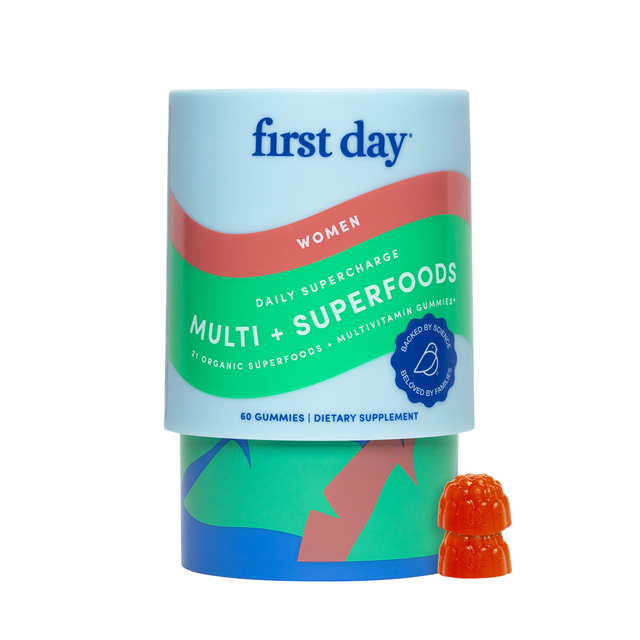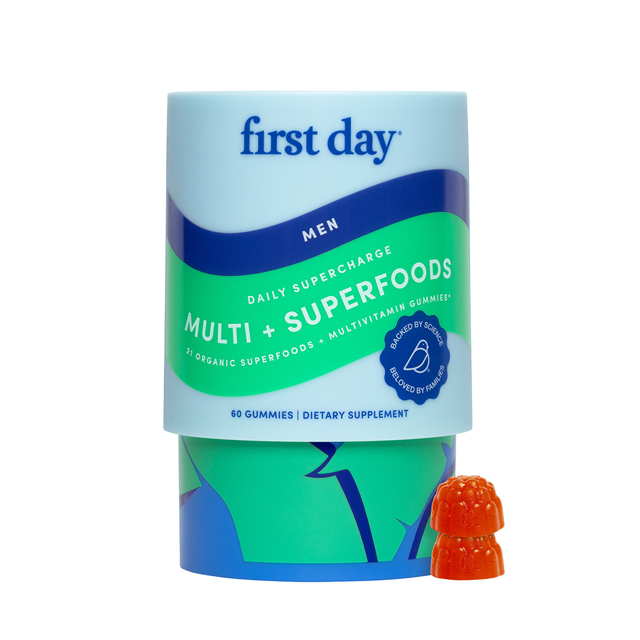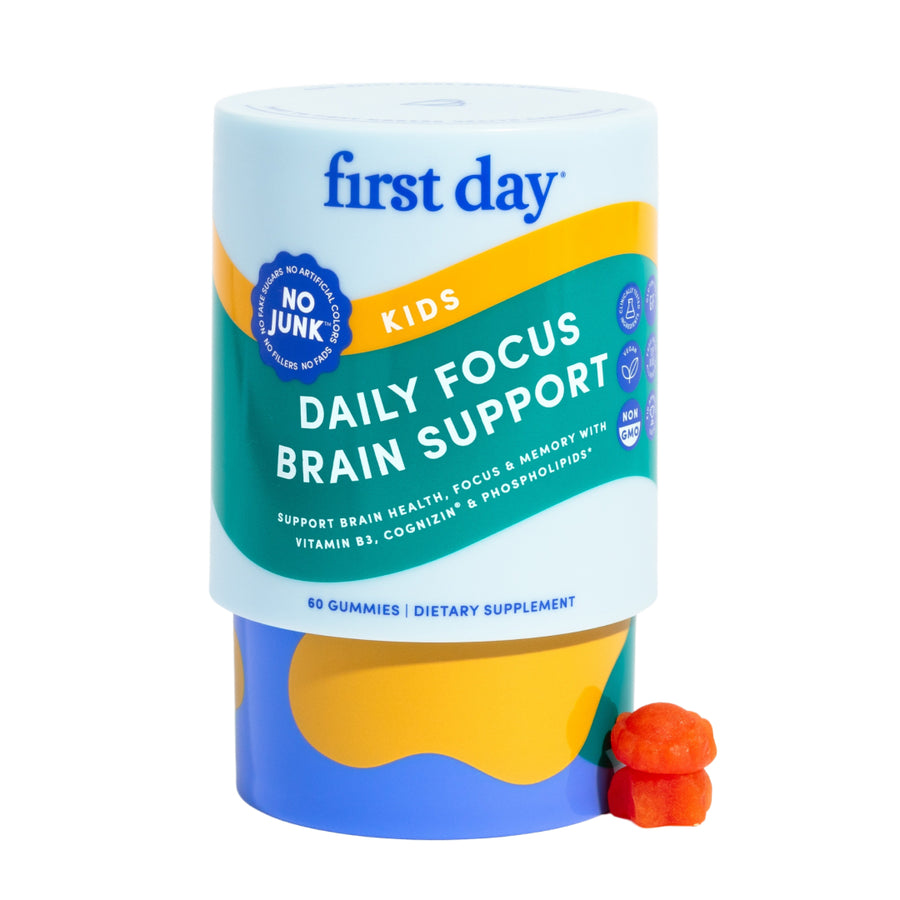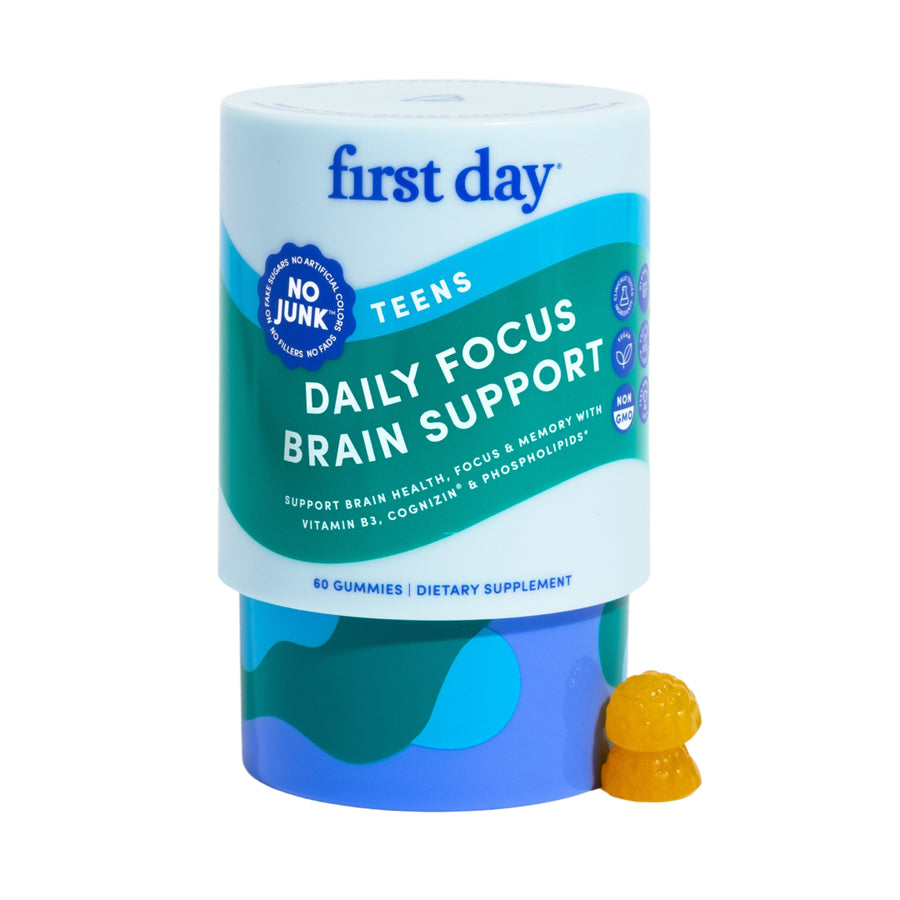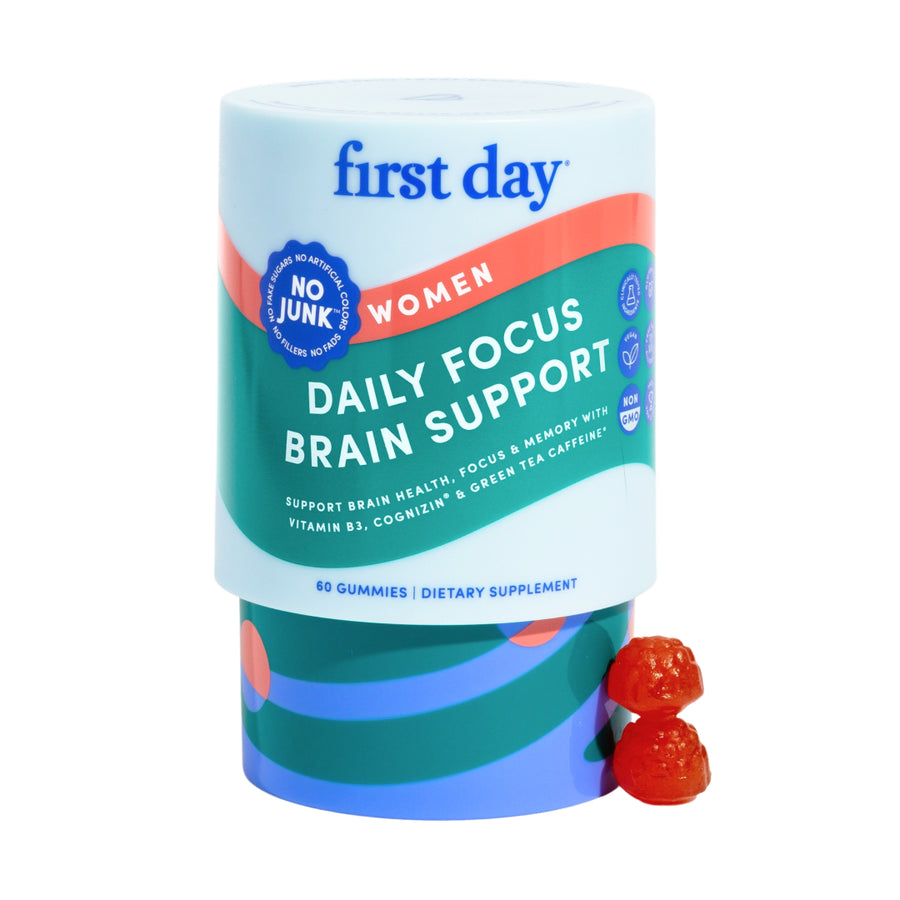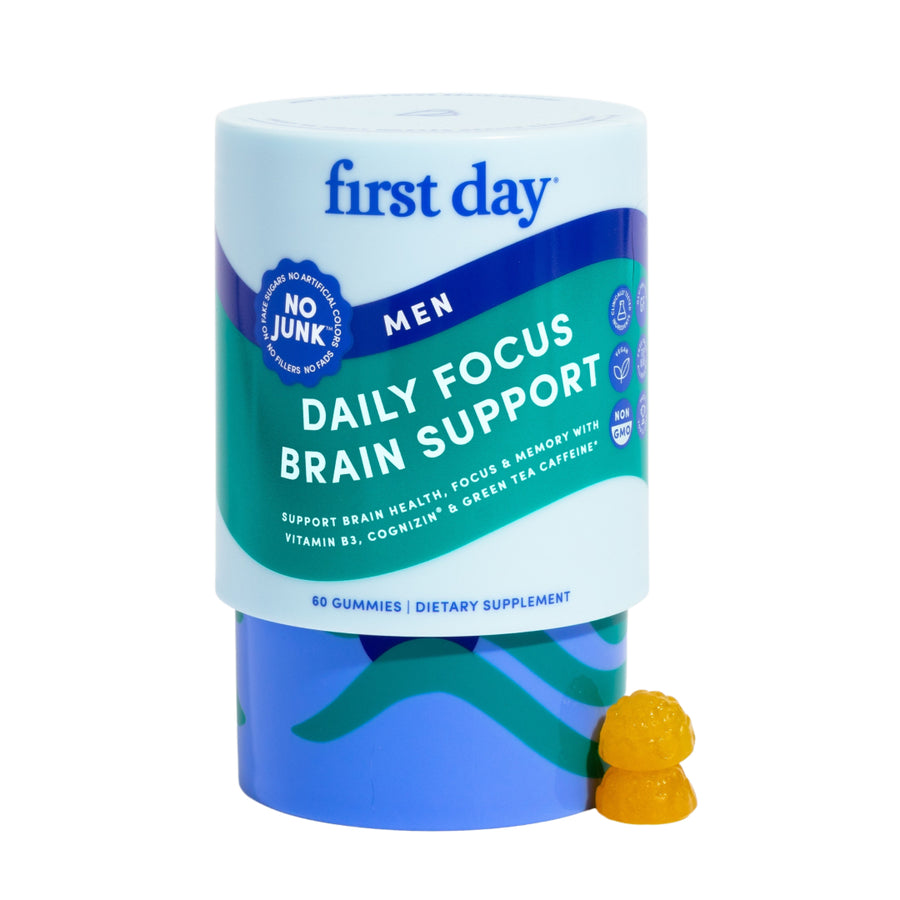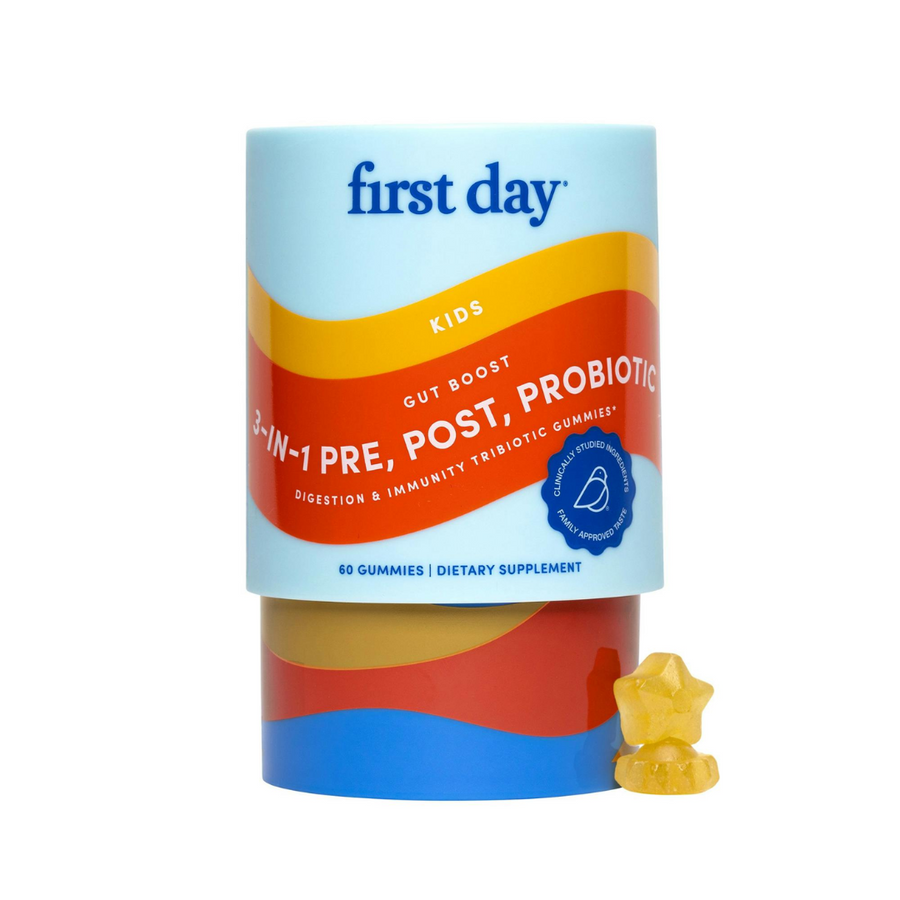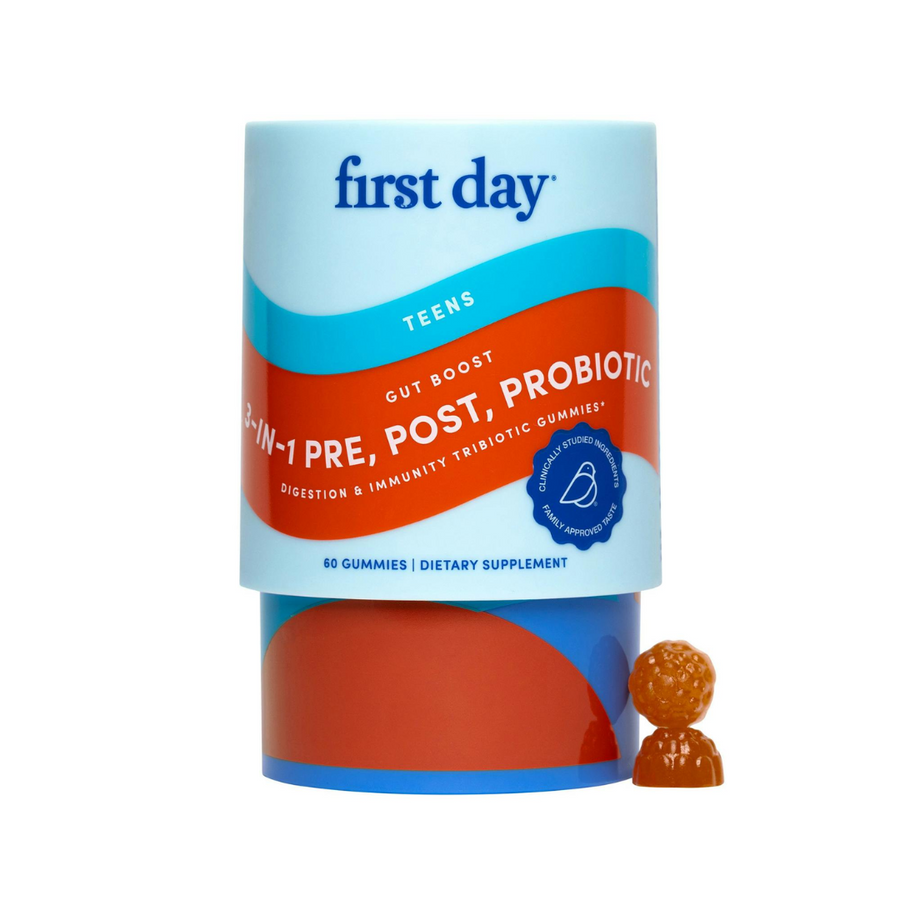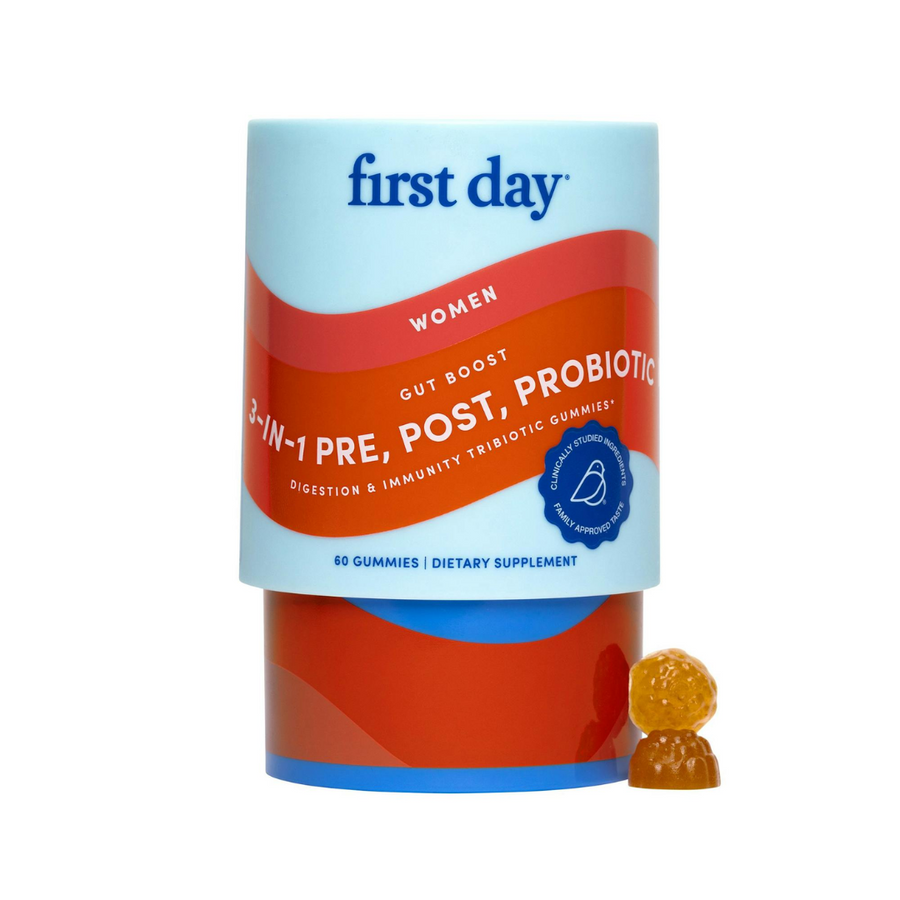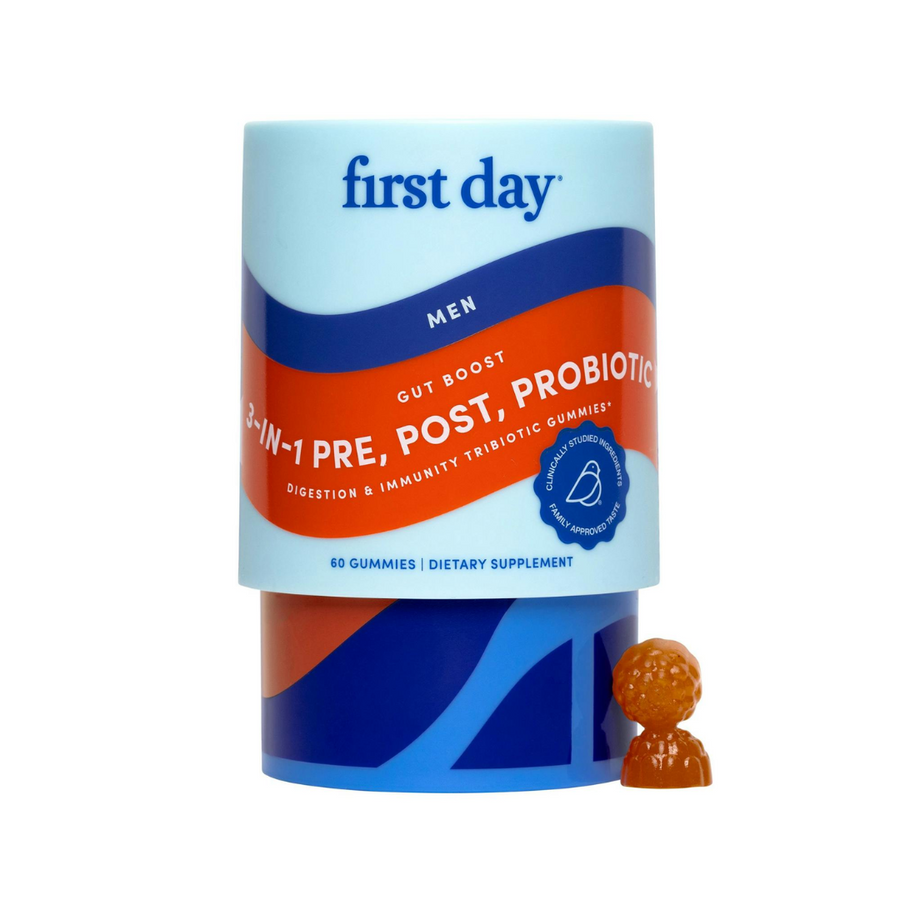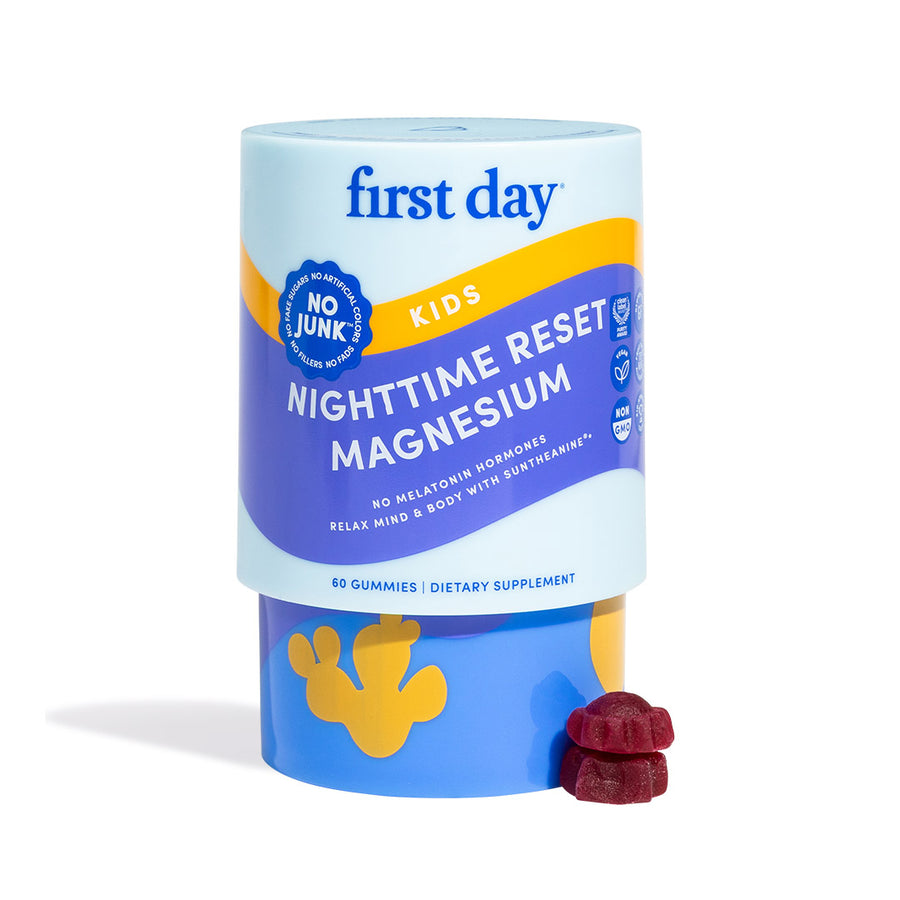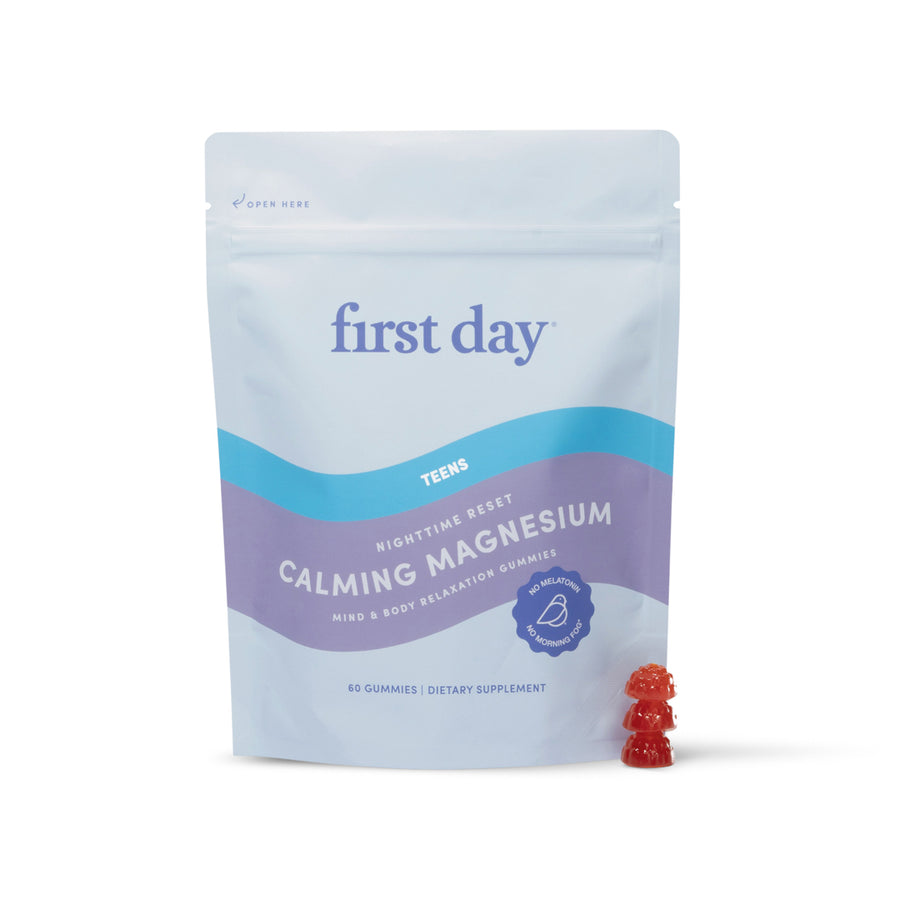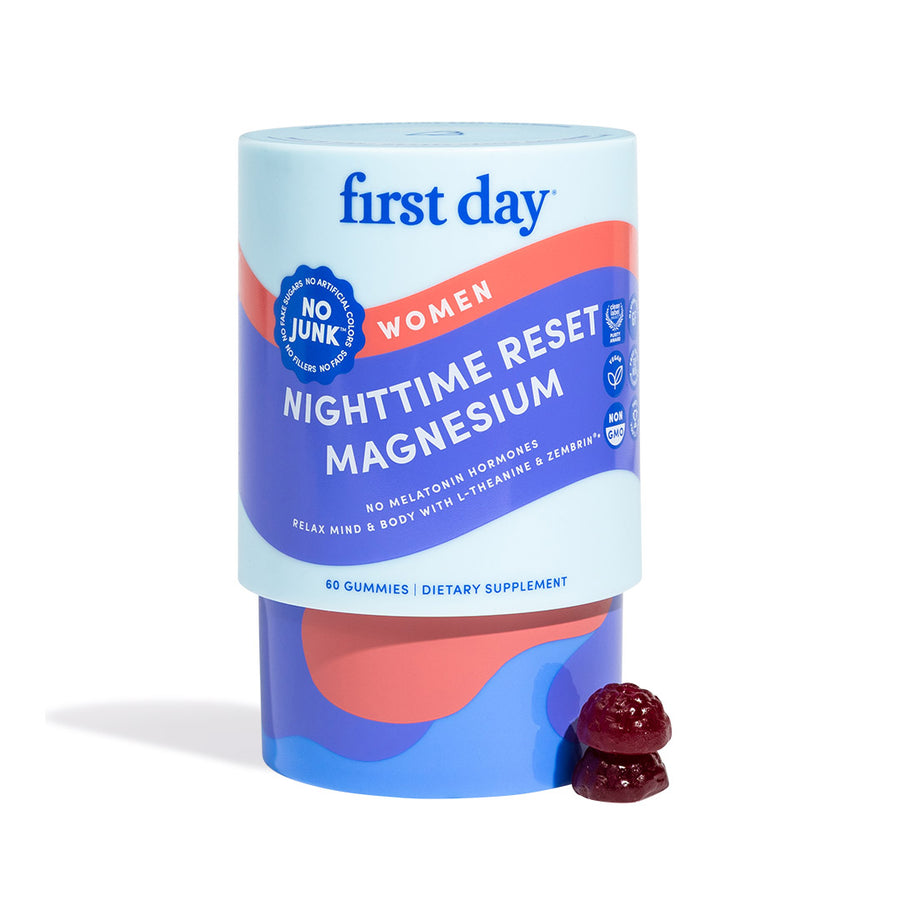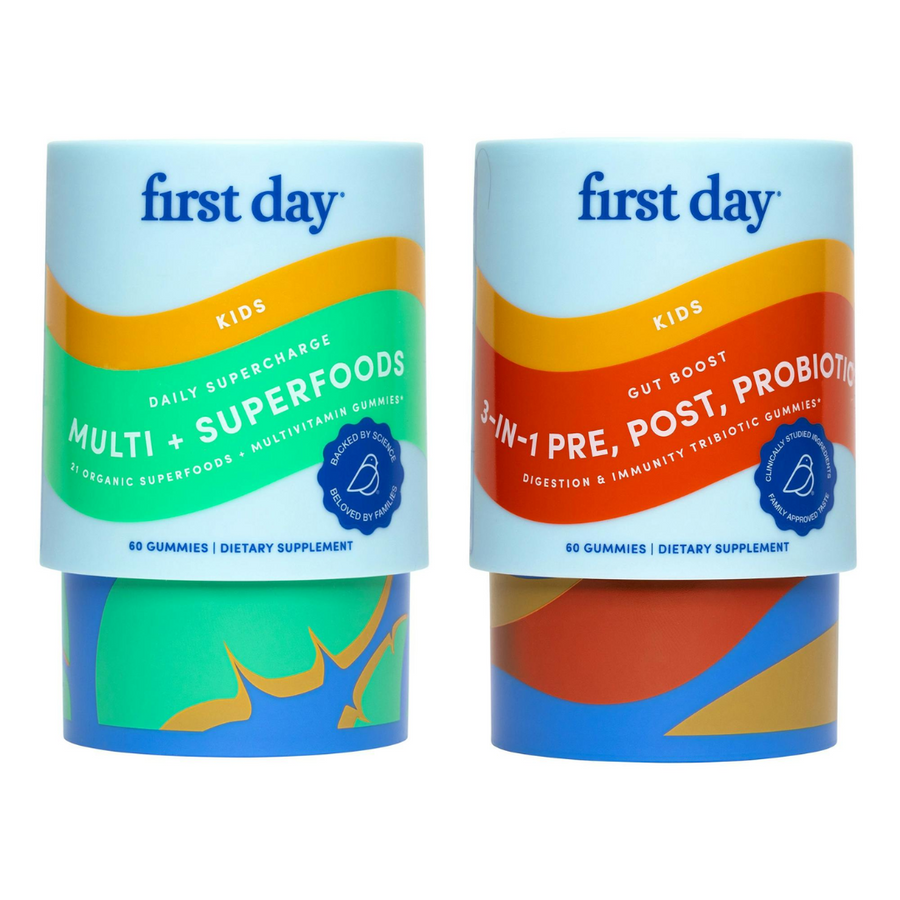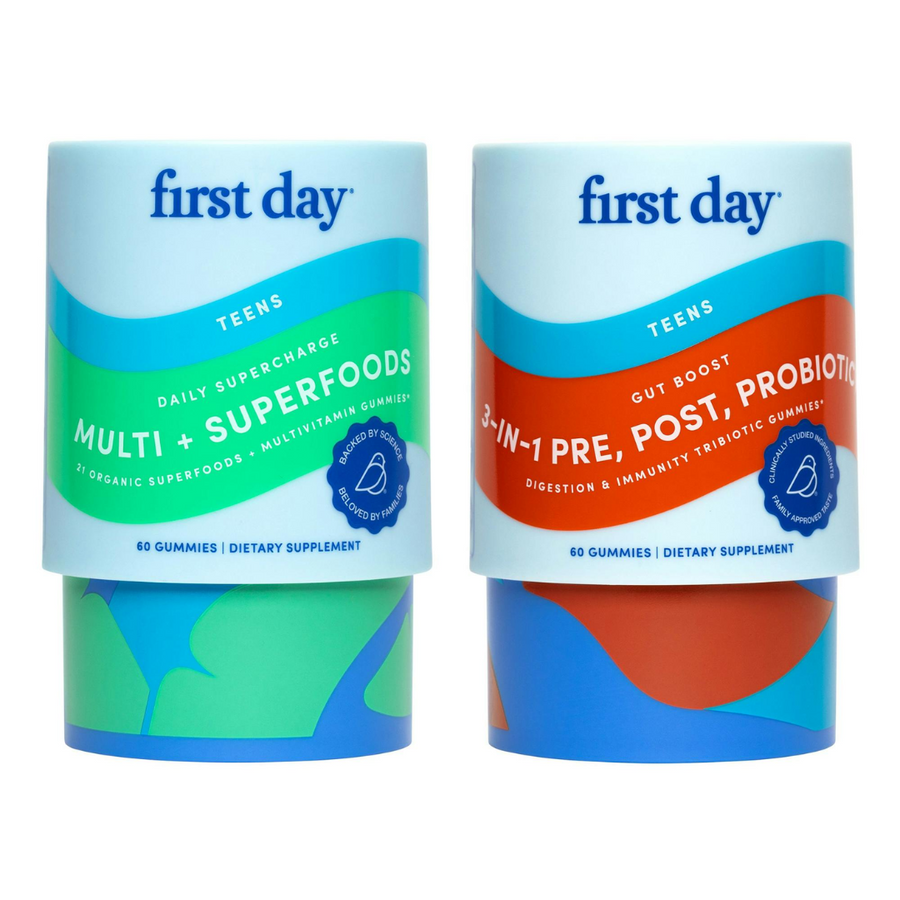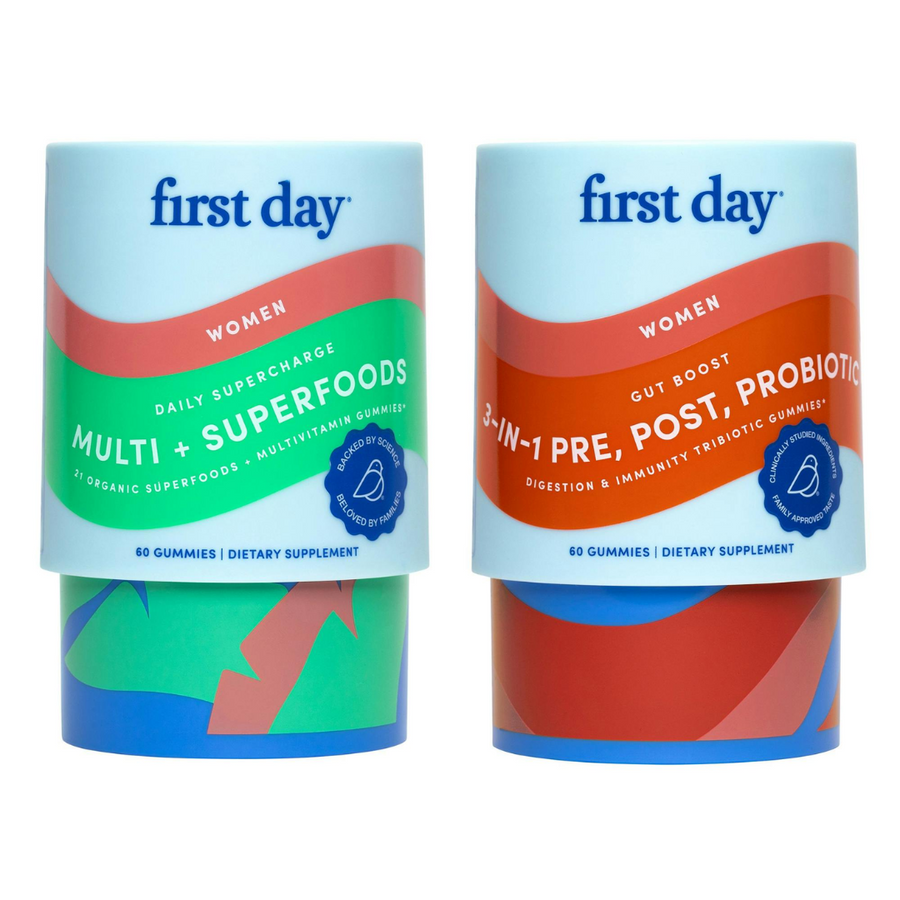Juggling daily life, from work to school runs and after-school activities, is no joke. It's easy to forget to make sure our kids get their essential vitamins in the middle of all that chaos. But let's face it, in our world of quick, grab-and-go snacks, vanishing nutrients, and hidden hunger, providing the best vitamins for kids is extremely important for their growth and development.
In fact, did you know that 61% of kids and teens have vitamin D insufficiency? That's the vitamin needed for strong bones and a healthy immune system. Not to mention kids' vitamin needs change based on their age, what they like to eat, and how active they are. So, knowing the ABCs (and Ds) of vitamins is critical to keeping your kids healthy and strong.
This blog post is all about breaking down the best vitamins for kids, why they're important, and how to sneak them into your child's diet without a fuss.
The Essentials: What Are Vitamins?
From the citrusy bursts of vitamin C that can boost their immune system, to the sunshine benefits of Vitamin D that ensure healthy bones, knowing which vitamins matter is a personal cheat sheet to making sure they get the best start in life!
Vitamin A
Vitamin A is a multitasker, crucial for vision, immune function, and growth. For example, according to studies, adequate vitamin A intake can lower the risk of infection and support overall growth and development. You'll find this vitamin in foods such as carrots, sweet potatoes, spinach, and eggs. For picky eaters, you can also reach for fortified cereals.
Vitamin B Complex
Vitamin B is not just one vitamin but a group of eight different vitamins, each with unique benefits. These include:
- B1 (thiamine)
- B2 (riboflavin)
- B3 (niacin)
- B5 (pantothenic acid)
- B6 (pyridoxine)
- B7 (biotin)
- B9 (folic acid)
- and B12 (cobalamin).
B vitamins are important for making energy and helping your brain develop. Studies also show that vitamin B12 is a big deal for your nerves and making red blood cells. This means your kids could end up being more focused and energetic if they get enough of it. Luckily, you can get these mighty B vitamins from foods like meat, dairy, whole grains, and those yummy leafy greens.
Vitamin C
Vitamin C is famous for making collagen, healing cuts and bruises, and - of course - boosting your kids' immune systems. According to a study in BMC Public Health, Vitamin C reduces the severity and duration of the common cold. Kids can get their vitamin C from citrus fruits, strawberries, broccoli, and bell peppers.
Vitamin D
Vitamin D is essential for bone health as well as helping their muscles and immune system stay in tip-top shape. For instance, a study published in Environmental Research and Public Health shows that children with enough vitamin D levels have a reduced risk of bone fractures. Getting kids outside to play in the sunshine or taking a vitamin D supplement is a fantastic way to boost their Vitamin D levels, along with incorporating delicious foods like fish or fortified dairy products.
Vitamin K
Vitamin K might not get the spotlight often, but it's the unacknowledged hero in helping blood clot properly, so your kids don't keep bleeding from every scrape and scratch. Think of it as their body's natural band-aid! They can get their dose from leafy greens like kale and spinach or even from broccoli and soybeans.
Figuring Out What Vitamins Kids Need
Your kids may be your mini-mes, but they definitely aren't small adults; their nutritional needs vary significantly as they grow. For instance, infants need more vitamin D for proper bone development. On the other hand, kids don't need as much vitamin E as adults because their bodies use it differently. This is why it's essential to know the age-specific requirements for your child.
For example, at First Day, we know that Vitamin E deficiencies are incredibly rare in kids, so adding more with multivitamins and supplements will be an overkill. That is why we specifically exclude vitamin E from our tasty gummy multivitamins for kids. We only include the best vitamins for kids - the ones that matter most for them to thrive.
Checking the recommended daily intake for your child’s age is a great place to start. Knowing the age-appropriate vitamins and minerals can help you avoid over- or under-supplementing. Resources such as the USDA's MyPlate tool can help you determine the right vitamin intake for your child's age group.
Dietary Deficiencies vs. Supplementation
Diet alone doesn't always cut it when meeting nutritional needs. For instance, the CDC reports that vitamin A deficiency affects about 190 million preschool-aged kids globally - which can lead to infections such as measles and diarrhea. A well-balanced diet rich in fruits and vegetables is ideal, but in some cases, pediatricians may suggest supplements to help fill the nutritional gaps and address any symptoms of hidden hunger.
But before starting your kids any supplements, you must talk to your pediatrician to make sure you're on the right track and not going overboard.
Choosing the Right Supplements

First off, not all vitamins are created equal. When choosing a supplement, consider factors like bioavailability (how well is it absorbed?), the absence of harmful additives, and brand reputation. Vitamin supplements with higher bioavailability are more effective in addressing deficiencies. Make sure to opt for vitamins that are free from artificial colors, flavors, and preservatives. Look for reputable brands that adhere to Good Manufacturing Practices (GMP) to ensure quality and safety.
For example, at First Day, our kids' gummy multivitamins are made with a blend of 12 organic fruits and veggies, and without any artificial additives.
Give Your Kids The Nutritional Boost They Need - Subscribe & Save 15% Today!
Getting Creative with Adding Vitamins to Kids' Meals
Now this is where the fun begins! Getting kids to eat their vitamins can be a challenge, but with a few creative tricks up your sleeve, it doesn’t have to be a battle.
Ensuring your children get enough vitamins from their diet is all about variety. Start by including a colorful range of fruits and vegetables like berries, oranges, and carrots, which are high in vitamins A and C. Lean meats, eggs, and fortified cereals can add iron and B vitamins to their meals.
Also, making mealtime fun can encourage kids to eat healthily. Try cutting fruits and vegetables into fun shapes or involve your kids in cooking to spark interest in what they're eating. A study found that kids who take part in meal preparation are more likely to try new foods. Additionally, setting a good example by eating a balanced diet yourself can go a long way.
Whip up some tasty, vitamin-packed recipes that kids will love. Smoothies are a great way to sneak in greens like spinach or kale along with fruits such as bananas and strawberries for a vitamin boost. Try making a colorful quinoa salad rich in protein and B vitamins, or oven-baked salmon rich in vitamin D and omega-3 fatty acids.
Monitoring Your Kids & Changing It Up
Spotting a vitamin deficiency early can make a huge difference in your child's health. You'll want to keep an eye out for these symptoms of hidden hunger:
- Frequent illnesses: This might mean a deficiency in vitamin C which is crucial for a strong immune system.
- Delayed wound healing: Poor healing of cuts or bruises could be a sign of vitamin C or K deficiency.
- Bone pain or muscle weakness: These can be warning signs for a lack of vitamin D.
- Vision problems: Difficulty seeing in low light can be a sign of vitamin A deficiency.
- Dry, flaky skin: This can signal deficiencies in vitamin A.
When to Consult a Healthcare Professional for Guidance
So, when's the right time to call in the experts? If you notice any of these signs and symptoms of hidden hunger it's worth having a chat with your kids' pediatrician. They're your go-to for personalized medical advice and can offer a detailed nutritional analysis.
Also, if your child has specific dietary restrictions such as allergies or follows a vegetarian or vegan diet, professional guidance can ensure they still get the necessary nutrients. Working with a dietitian can provide tailored dietary plans to prevent deficiencies.
For example, instead of using gelatin, First Day's vegan vitamin gummies are made of the plant-based alternative, pectin. Gelatin can cause allergic reactions and is non-vegan because it’s made from boiling animal hooves. With pectin, we can ensure our gummies are hypoallergenic and made of the highest quality.
Give Your Kids The Nutritional Boost They Need - Subscribe & Save 15% Today!
Busting Myths and Misconceptions!
It's easy to get overwhelmed with all the information out there, so let's tackle two big myths together.
Myth 1: "Vitamins Can Replace a Balanced Diet"
Did you hear the one about popping vitamin pills to skip eating your veggies? Yeah, not exactly a winning strategy. Even though dietary supplements are great for filling in some gaps, they just can't beat the real deal - whole foods. The American Journal of Lifestyle Medicine spells it out: plant-based, whole foods bring a bunch of nutrients, fiber, and other good stuff to the table that pills just can't match. Imagine trying to cram all the health perks of fresh fruits, veggies, lean proteins, and grains into a tiny pill. Not happening, right? So, let's keep our plates colorful and varied, and only lean on supplements to boost what's missing, not replace it.
Myth 2: "Vitamins are Only for Kids Who Don't Eat Enough"
Hold up! This one's a throwback to the times when vitamins were only handed out like rare gems to picky eaters. The truth? Even the best eaters sometimes miss out on essential nutrients. Let's face it, today's lifestyles and busy schedules can make it tough to always serve up perfectly balanced meals. Maybe one day it's soccer practice running late, or another day they're just not feeling those greens on the plate. That's where vitamins step in, like a dependable sidekick, making sure even the most health-conscious kiddos get their full nutritional backup.
Vitamins are not a replacement for healthy eating, but they can be an awesome safety net to catch those occasional nutritional slips. So, whether your child's a veggie lover or famously fussy, adding vitamins to their routine can be a simple yet powerful way to keep them thriving.
Wrapping Up: The Best Vitamins for Kids
Taking care of your child's nutritional needs doesn't have to be a monumental task. With a little bit of effort, some delicious recipes, and a watchful eye on their vitamin intake, you can ensure they're getting everything they need to grow up healthy and strong. Remember, it's not about perfection but about creating a healthy diet that kids can enjoy and stick to - while filling the gaps with high-quality multivitamins for kids.
Ready to create a nutritional safety net with First Day Kid's gummy vitamins? Packed with all the good stuff and none of the bad, they're the perfect addition to your child's daily routine.
Give Your Kids The Nutritional Boost They Need - Subscribe & Save 15% Today!
References:
Kumar, J., Muntner, P., Kaskel, F. J., Hailpern, S. M., & Melamed, M. L. (2009). Prevalence and Associations of 25-Hydroxyvitamin D Deficiency in US Children: NHANES 2001-2004. PEDIATRICS, 124(3), e362–e370. https://doi.org/10.1542/peds.2009-0051
Kennedy, D. (2016). B Vitamins and the Brain: Mechanisms, Dose and Efficacy—A Review. Nutrients, 8(2), 68. https://doi.org/10.3390/nu8020068
Koury, M. J., & Ponka, P. (2004). New insights into erythropoiesis: the roles of folate, vitamin B12, and iron. Annual Review of Nutrition, 24(1), 105–131. https://doi.org/10.1146/annurev.nutr.24.012003.132306
Hemilä, H., & Chalker, E. (2023). Vitamin C reduces the severity of common colds: a meta-analysis. BMC Public Health, 23(1), 1–13. https://doi.org/10.1186/s12889-023-17229-8
Herdea, A., Ionescu, A., Dragomirescu, M.-C., & Ulici, A. (2023). Vitamin D—A Risk Factor for Bone Fractures in Children: A Population-Based Prospective Case–Control Randomized Cross-Sectional Study. International Journal of Environmental Research and Public Health, 20(4), 3300. https://doi.org/10.3390/ijerph20043300
Vermeer, C. V. (2012). Vitamin K: the effect on health beyond coagulation – an overview. Food & Nutrition Research, 56(1), 5329. https://doi.org/10.3402/fnr.v56i0.5329
Delavar, M., Karimian, P., Ebrahimi, H., & Jafarnejad, S. (2022). Effects of vitamin D on bone density in healthy children: A systematic review. Journal of Family Medicine and Primary Care, 11(3), 870. https://doi.org/10.4103/jfmpc.jfmpc_2411_20
National Institutes of Health. (2021, March 22). Office of Dietary Supplements - Vitamin E. Nih.gov. https://ods.od.nih.gov/factsheets/VitaminE-Consumer/
National Institute of Health. (2019). Nutrient Recommendations and Databases. Ods.od.nih.gov; National Institutes of Health. https://ods.od.nih.gov/HealthInformation/nutrientrecommendations.aspx
U.S. Department of Agriculture. (2024). MyPlate. MyPlate; U.S. Department of Agriculture. https://www.myplate.gov/
CDC. (2024, March 29). Micronutrient Facts. Nutrition. https://www.cdc.gov/nutrition/features/micronutrient-facts.html?CDC_AAref_Val=https://www.cdc.gov/nutrition/micronutrient-malnutrition/micronutrients/index.html#cdc_generic_section_3-vitamin-a
Medicines: Good manufacturing practices. (2015, November 20). Www.who.int. https://www.who.int/news-room/questions-and-answers/item/medicines-good-manufacturing-processes#:~:text=What%20is%20GMP%3F
Color Your Plate Healthy – Penn Medicine. (n.d.). Www.pennmedicine.org. https://www.pennmedicine.org/updates/blogs/health-and-wellness/2018/january/color-your-plate-healthy#:~:text=It%20has%20been%20said%20that
DeJesus, J. M., Gelman, S. A., Herold, I., & Lumeng, J. C. (2019). Children eat more food when they prepare it themselves. Appetite, 133, 305–312. https://doi.org/10.1016/j.appet.2018.11.006
Maxfield, L., & Crane, J. S. (2019, November 19). Vitamin C Deficiency (Scurvy). National Library of Medicine; StatPearls Publishing. https://www.ncbi.nlm.nih.gov/books/NBK493187/
Bechara, N., Flood, V. M., & Gunton, J. E. (2022). A Systematic Review on the Role of Vitamin C in Tissue Healing. Antioxidants, 11(8), 1605. https://doi.org/10.3390/antiox11081605
Yale Medicine. (2024). Vitamin D Deficiency. Yale Medicine. https://www.yalemedicine.org/conditions/vitamin-d-deficiency#:~:text=When%20vitamin%20D%20levels%20are
Hodge, C., & Taylor, C. (2021). Vitamin A Deficiency. PubMed; StatPearls Publishing. https://www.ncbi.nlm.nih.gov/books/NBK567744/
Gelatin allergy. (2020). Aaaai.org. https://www.aaaai.org/allergist-resources/ask-the-expert/answers/old-ask-the-experts/gelatin-allergy
Esquivel, M. K. (2022). Nutrition Benefits and Considerations for Whole Foods Plant-Based Eating Patterns. American Journal of Lifestyle Medicine, 16(3), 155982762210759. https://doi.org/10.1177/15598276221075992

